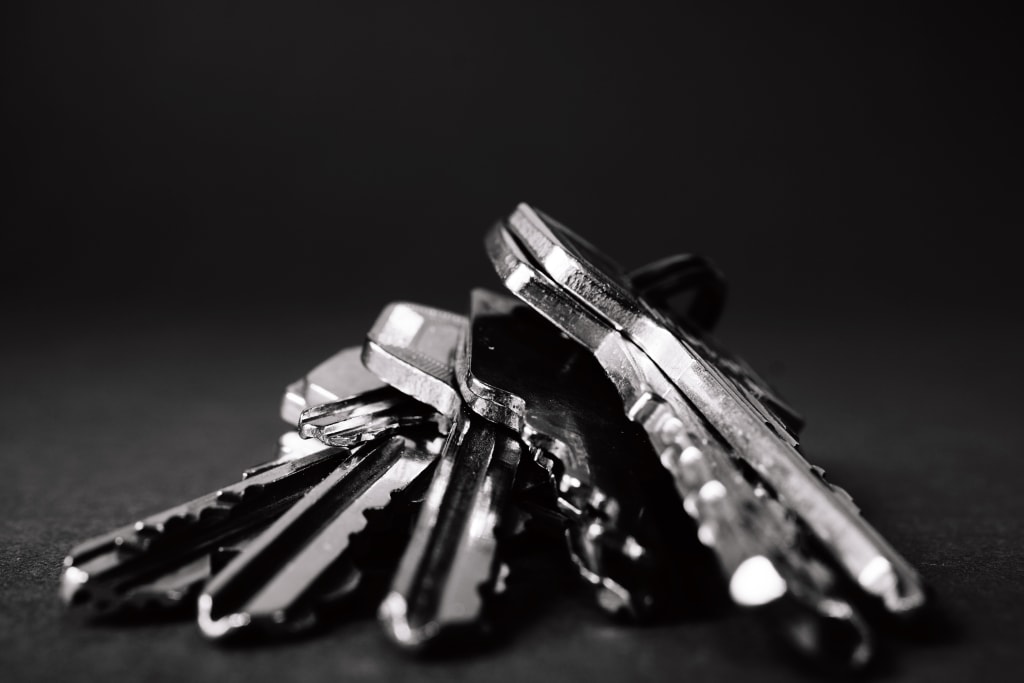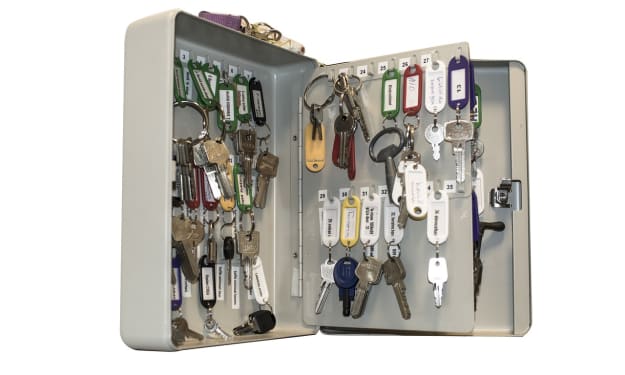Security Solutions for Property Management Companies
What kind of security solutions do property managements companies need?

A property management company is a firm that manages and maintains rental properties on behalf of landlords and property owners. Their responsibilities may include collecting rent, handling maintenance and repair requests, screening tenants, handling key storage and handling legal issues related to renting the property. The goal of a property management company is to ensure that the landlord’s investment is well-maintained and provides a return on investment through regular rental income.
Property management companies face a variety of challenges on a daily basis, including:
• Balancing the needs of tenants and landlords: They must ensure that the tenants are happy and have a safe and well-maintained place to live, while also maximising the return on investment for the landlord.
• Maintenance and repair: Keeping rental properties in good condition and responding to maintenance requests in a timely manner can be a major challenge, especially in large buildings with multiple units.
• Rent collection: Collecting rent on time can be a challenge, particularly when tenants fall behind on payments.
• Legal compliance: They must stay up-to-date on the latest housing laws and regulations and ensure that they are in compliance with these laws at all times.
• Finding and retaining tenants: Finding and retaining good tenants is critical to the success of any rental property. These companies must continually work to attract and retain high-quality tenants.
• Financial management: They must accurately track income and expenses and ensure that properties are financially stable.
These companies also face a variety of security challenges on a daily basis, including:
• Tenant safety: Ensuring that tenants are safe and secure in their homes is a top priority for them. This may include implementing security measures such as lock, cameras and alarm systems.
• Physical property security: Protecting physical property from theft, vandalism and other forms of damage can be a challenge, especially in high-crime areas.
• Data security: They often store sensitive information about tenants and landlords, such as financial information, personal identification numbers, and background checks. Ensuring the safety of this information is critical to avoid identity theft and other forms of fraud.
• Emergency preparedness: Property managers must have plans in place for responding to emergencies such as fires, natural disasters and other events that could pose a threat to tenants and the property.
• Cybersecurity: With an increasing number of these companies relying on technology to manage properties, cybersecurity is becoming a major concern. They must take steps to protect their systems and data from hacking, malware and other cyber threats.
What kind of security solutions can these companies use?
Property management companies can use a variety of security solutions to address the unique challenges they face, such as:
• Physical security measures: Installing locks, cameras, alarm systems and other physical security measures can help deter crime and ensure the safety of tenants and the property.
• Access control systems: Implementing electronic access control systems, such as key fobs or biometric systems, or even key cabinets for storing tenant keys with their respective key tags, can provide an extra layer of security for properties.
• Data encryption: Encrypting sensitive data, such as financial information and personal identification numbers, can help protect against identity theft and other forms of fraud.
• Cybersecurity measures: Implementing firewalls, anti-virus software and other cybersecurity measures can help protect against hacking and other cyber threats.
• Emergency response planning: Developing a comprehensive emergency response plan and conducting regular drills can help ensure that property management companies are prepared to respond to emergencies quickly and effectively.
• Background checks and tenant screening: Screening tenants thoroughly and conducting background checks can help prevent problems before they arise by identifying individuals who may pose a threat to the property to other tenants.
How can property managers ensure physical key security?
These types of companies can ensure physical key security by implementing the following measures:
• Controlled access: Limiting access to keys y implementing strict policies on who can issue and use them, such as requiring sing-out sheets or key card access systems.
• Secure storage: Storing them in a secure location, such as a locked cabinet or safe, to prevent unauthorised access.
• Tracking: Keeping accurate records of who has access to each key and when, to prevent loss or theft.
• Duplication controls: Implementing policies to control who has access to duplicate keys and ensuring that duplicates are only made when necessary and with proper authorisation.
• Replacement protocol: Establishing a protocol for quickly and securely replacing lost or stolen keys to minimise potential security breaches.
• Regular audits: Conducting regular audits of key usage and storage to ensure that security protocols are being followed and to identify any potential vulnerabilities.
By implementing these measures, property managers can help ensure that physical keys remain safe and secure and that the properties they manage are protected from theft or unauthorised access.
What are the benefits of physical key control for these types of companies?
Physical key control provides a number of benefits for property management companies including:
• Enhanced security: By controlling access to keys, they can reduce the risk of theft or unauthorised access to rental properties.
• Improved tenant safety: Limiting access to keys and ensuring that only authorised individuals have access to the homes or apartments can help increase tenant safety and security.
• Reduced liability: They can reduce the risk of liability in the event of theft or other security breaches.
• Increased efficiency: By keeping accurate records of who has access to each key, they can respond quickly and effectively to requests for access, reducing the risk of delay and increasing overall efficiency.
• Better financial management: They can minimise the risk of lost or stolen keys, reducing the costs associated with replacement and improving financial management.
These types of control mechanisms help these companies to provide a safe, secure and efficient rental experience for tenants and landlords while reducing the risk of security breaches and liability.
About the Creator
Roxanne Ferdinands
Writer! Writer! Writer!






Comments
There are no comments for this story
Be the first to respond and start the conversation.